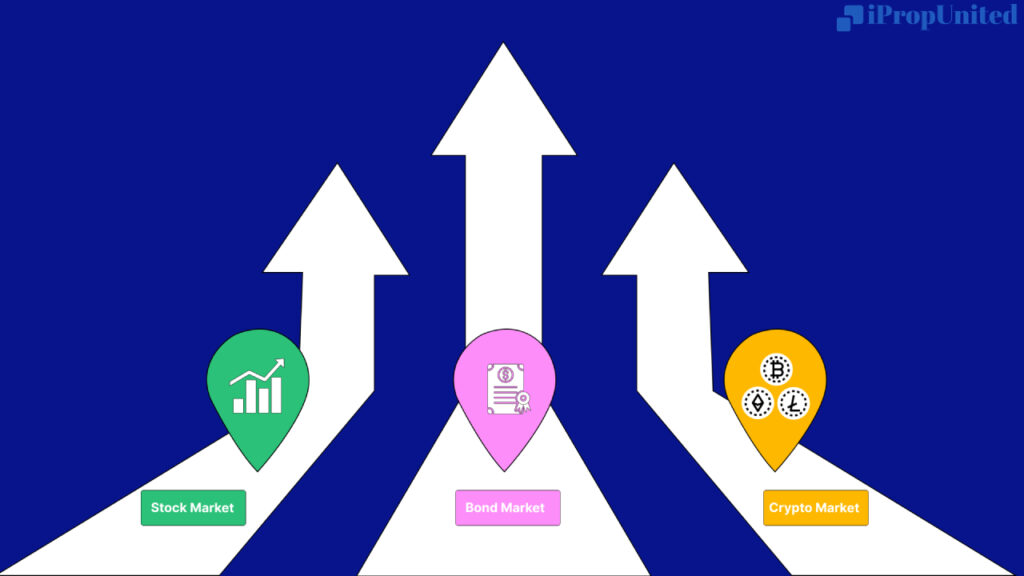
Financial Market
Financial markets, which include the stock market, bond market, currency market, and derivative market, among others, are any marketplace where trading in securities takes place.
These markets allocate resources and give businesses and entrepreneurs access to liquidity, both of which are critical for the effective running of economies. The markets make trading financial holdings uncomplicated for both buyers and sellers. Financial markets design securities as a way to reward investors and lenders who have extra money (Lenders/Investors) while also making that funds available to those who require it (Borrowers).
Stock exchange/market is just one type of financial market. The financial markets are created via the buying and selling of many types of financial assets, including equities, debt instruments, currency, and commodities. These markets primarily rely on instructive lucidity to ensure that pricing is both effective and appropriate. Due to macroeconomic factors like taxation, the market prices for securities may not reflect their true value.
Types of Financial Markets
Capital Market
The term capital market is a generic one that describes both real-world and online marketplaces where numerous entities trade different types of financial items. These venues could include the stock exchange, debt market, currency, and, forex markets, amongst many others.
Capital markets are composed of both buyers and sellers of funds. Households, as well as organizations like retirement and pension funds, life insurance firms, charity foundations, and non-financial businesses that have surplus income, are suppliers (through the accounts they hold with banks). Purchasers of homes and automobiles, non-financial businesses, and governments funding infrastructure investment and operational costs are some of the users of the cash allocated on capital markets.
Capital markets are typically used for the sale of financial products like equities and debt securities. Shares or stock resembles the ownership of an individual in a firm. IOUs that bear interest include bonds and other debt instruments.
There are two distinct groups into which these markets fall-
Primary Markets: Where investors can purchase fresh equity stock and bond issues.
In the primary capital market, a corporation offers new shares or bonds for the very first time to the general public, as in an IPO. The new issues market is another name for this marketplace. When investors buy shares on the primary market, the company that issues the securities hires an underwriting company to analyze it and create a prospectus outlining the price and other characteristics of the shares to be issued.
Secondary Markets: For existing securities trading.
The previously issued stocks are traded between investors in the secondary market, which consists of places governed by regulatory bodies like the SEBI. Companies that issue securities have no involvement in the secondary market.
Derivative Market
A derivative is a contractual commitment between two or more parties, the value of which is determined by an accepted underlying financial asset (such as a securities) or collection of assets (like an index). The value of derivatives, which are secondary securities, is wholly based on the value of the underlying security to which they are tied. A derivative has no value by itself. A derivatives market trades complex financial products like options and futures contracts, which draw their value from underlying securities such as bonds, commodities, commodities, interest rates, market indices, and stocks, as opposed to trading equities directly.
On futures markets, the contracts of futures are listed and traded. The futures markets, which use standardized contract conditions, are well-regulated, and use financial institutions to settle and confirm trades, in contrast to OTC forward markets. Options markets list and oversee options contracts in a similar manner. On F&O exchanges, contracts on a diverse range of asset classes, such as shares, fixed-income securities, commodities/derivatives, and others, may be listed.
Forex Market
The market where participants can purchase, resell, protect, and gamble on the exchange rates between currency pairings is known as the forex (foreign exchange) market. The FX market is the world’s most liquid market as cash serves as the most liquid among every asset. Daily transactions on the currency market exceed $6.6 trillion, which is greater than on the futures and stock markets put together.
The forex market is decentralized and made up of a global computer network and brokers from all over the world, just like the OTC markets. The forex market is composed of corporations, central banks, hedge funds, AMCs, and small-scale currency traders and investors.
Debt Market
In a bond, an owner lends money at a fixed rate of interest for a specified period of time. A bond can be thought of as an agreement between the borrower and the lender describing the conditions of the loan and the payments. To finance operations and projects, corporations, along with localities, jurisdictions, and other sovereign organizations, issue bonds. Securities like notes and bills issued by the Treasury, for instance, are sold on the bond market.
Follow and Connect with us: Twitter, Facebook, Linkedin, Instagram







